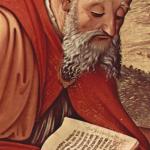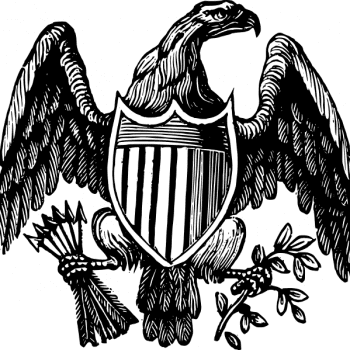Roots Needed
 Odysseus needed Ithaca and a mentor. Rehoboam shoud have listened, at least once, to his father’s wisemen. Ignore real roots and perish.
Odysseus needed Ithaca and a mentor. Rehoboam shoud have listened, at least once, to his father’s wisemen. Ignore real roots and perish.
Classical schools should know Homer, but many skimp on finding authentic mentors. Christian schools must have heard that ignoring the fathers for a trend (even a good trend) hastily can destroy what might have been established.
It would be a great pity to teach Homer and the Bible only to ignore the lessons of the Odyssey and the Bible.
Good ideas die when cut off from people who can do them, actually do them. Better to be true to your roots, than to grab a great idea and try to implement it without doing the work to dig a deep foundation. I am told that Someone once said that a wise person builds on a strong foundation. Sadly, many classical Christian schools are great ideas built on sand.
A good school needs a strong connection to men and women with decades in the field. Our school could not thrive without the wisdom of older folk like my Mom and Dad, workers in Christian education since the 1970’s. I make it a practice to sit and listen to older teachers even if they are not classically educated or even Christian.
What can they teach me?
I began too soon and have regretted my mistakes ever since.
The best classical schools are often found in Christian groups that come to the texts and methods naturally. Lutherans have been educated in America for over a century. They get it. Catholics adapted Eastern classical and Christian education to Western forms over a millennium ago. They get it.
If you are not in such a community, then you must dig deeply yourself and find a connection to a global church community (this avoids becoming inbred) and an authentic connection to the spiritual fathers and mothers of the Church. I have seen this done successfully by Wesleyans and Reformed people . . . As successfully as any more “historic” group, but it must be done and it is work.
Necessary Roots
If a classical Christian school is to thrive, then our intellectual roots must be as deep as possible.
Every school will need different “roots” as each will have a different geographic, cultural, and Christian context. Nobody can borrow “roots” from someone else. I have made many errors, sinned and repented, and am no role model. Still I have persisted and found deep roots in classical, Christian education in my place. Perhaps my specific example can suggest general approaches for those who would do better than I have done.
The minimum for me has included:
First, nobody should teach without a mentor. In a classical Christian school, one needs (at minimum) one classical mentor, one spiritual father or mother, and an educational guide. In my case, I have been blessed with several classical mentors, but one: Alfred Geier.
You cannot be mentored in a day or even a few years. Find someone who knows classical education and spend decades drinking his or her wisdom. I spent thirty years discussing Plato with Al. I cannot stand to think that I cannot do so now, for the first year. Do whatever it takes to find such a mentor. Move if you have to do so.
My life has been blessed by having a mother and father who were also spiritual parents. We still live near each other so I can keep learning from them. Other deeply learned and spiritual men and women included Nancy Balentine, Brian Larkin, Dr. Fount Shults, Rev. George Osborne, Sheldon Vanauken, Father Michael Trigg, and Father Richard Petranek (to name a few). Multiply these folk endlessly.
Finally, I have looked for master teachers (some of the same people fit many categories) to help me. In particular, Phillip E. Johnson never stops making me think. He thinks inside the box, on the box, far outside the box, that old fox! I cannot begin to name all the teachers who have helped me. Find good ones and learn. My present colleagues do this for me daily.
Never trust a leader who does not hire people better than he is and does not maintain that contact.
Read.
God help us, but there are classical Christian educators who do not read. Re-read every book before every class. Prepare new questions. Find a classical, a Christian, and an educational book that you read every year. For me the critical books have been Republic, That Hideous Strength, and Abolition of Man. Having read old books, read the newest research you can find. Always.
The Great Teacher
What is makes the great classical, Christian teacher?
I have seen them. I have made enough errors that I cannot be one, but I can aspire to be close.
The great classical, Christian teacher:
- is deeply read in classics
- is deeply read in Christian thought
- is a deeply read in pedagogy
And:
- has the classical virtues
- is becoming holy before the Lord
- is practicing great pedagogy daily.
A bad school will accept teachers with one list or the other. A good school demands both lists.
You cannot educate (in the end) what you do not know, even if you (accidentally) do it. You cannot educate (in the end) what you do not live, even if you know it.
Those who do, teach best. Those who know, do best.
The mediocre teacher has some of these qualities, the great one all.
If classical Christian education is true, then our teacher training should consist of a few lectures, much reading, and a huge number of discussions. We will use the dialectic to train our folk and to be trained with them. Read books together as a faculty. Discuss. Debate. Live the method.
Logic and Science: Two Examples of Areas Where Expertise Should Meet Practicality
If a school is to be classical, college or secondary, then it must teach logic. If logic is to be taught, then someone must know real logic: mathematical logic. Informal logic is good, as far as it goes, but rigorous mental training begins when a student begins the hard work of quantifying an argument.
Aristotelian logic was brilliant, but the last one hundred years gave us new logical tools. We cannot ignore them anymore than one would give up an iPad to do computing on a C-64. Do not start a classical school without one person (and we have a glut of them to hire) that can teach modern logic through set theory.
We need science materials produced by classical educators, scientists, and philosophers of science. Together they can bring the expertise we need to deal with all the issues in a useful way. Too many resources are either good pedagogy with dodgy science or good science with ludicrous philosophy of science. Worst of all would be a book that got the philosophy and the science right, but then was useless in the classroom.
Expertise matters. We might start doing the best we can, but the best we can do should keep improving! Just as a church musician might start with four chords, but work hard to master his instrument over time, so the logic and science teacher must gain deep roots in the field.
Find a mentor.
Learn the craft.
Teach.
We can do this. We must do this. By God’s grace, we will do this.
—————————————-
This essay answers a series of questions from an excellent graduate student.













